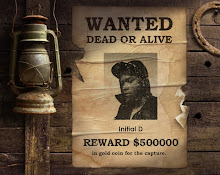20.10
|
By I Gede Kartika Wijaya
When a major disaster like the quake in Haiti hits, good people and groups around the world step up to offer help and donations. Right behind them evil scammers around the world scramble to intercept those donations. In the next few days you'll probably encounter numerous e-mails, Facebook groups, and tweets with links to sites requesting donations to help the quake victims. How can you separate the valid charities from the frauds?
Here are ten tips to ensure your donations go to the right place.
- Sanity-check URLs. Some scammers are sloppy. If an e-mail message claims to be from the International Red Cross, say, but the URL links point to something wildly different, stay away! Not sure? In most e-mail clients you can point to a link with the mouse and see the actual URL in the status bar or in a tooltip.
- Decode Short URLs. If a tweet or other post includes a shortened URL pointing to a charity site, don't click it. Instead, use one of the many services that retrieve the full URL. Here again, if it looks wrong, stay away.
- Don't Even Click Valid URLs. Even if the links in an e-mail appear to be valid, don't click them. Instead, navigate directly to the organization's web site and look for information about helping disaster victims.
- Run a Background Check. We can't all be familiar with every legitimate aid group. Before visiting a group you don't recognize, check the site's ownership using www.whois.net or another site that supplies whois data. This should give you the full company name, an address, a contact name, and a phone number. If the results don't jibe with the stated name, stay away.
- Do a History Check. You'll surely feel safer donating to a charity Web site that's been around for a while. Go to the Internet Archive and check the site's history. If there's no history, the site is very recent. Yes, it could be that the organization was formed to help with the current crisis, but it could also point to an opportunistic scam.
- Ask the Better Business Bureau. The Better Business Bureau online offers a page that lets you check their charity reviews. You can search by name, URL, e-mail address or phone number. A positive response means it's a valid charity, but "not found" isn't necessarily a black mark. For example www.icrc.org, the Web site for the International Committee of the Red Cross, isn't in the BBB database.
- Don't Donate Cash. If the charity asks for cash, offers to send a messenger to pick up your donation, pressures you to donate more than you've offered, or otherwise seems over-eager, disengage right away. Your safest donation is a check, made out to the organization and not to any individual.
- Beware Collateral Damage. Scammers trolling for cash aren't your only worry. As with other newsworthy search terms, searches about the Haiti quake may turn up malicious Web sites. The bad guys get these sites into search results using what's called "SEO poisoning" (SEO means Search Engine Optimization). Click the wrong one and you may be hit with a drive-by download; let's hope your security suite blocks it.
- Give to Groups. You may get an appeal through e-mail or social networking from an unfamiliar individual claiming to be a victim and asking for your direct help. It may seem hard-hearted, but don't respond. Impersonating a victim is much easier than impersonating a charity. If the appeal touches your heart, make your donation to a known aid organization.
- Give Proactively. Supposing you do want to donate money toward aiding the quake victims, don't wait for an invitation. Locate a likely charity that's helping in that area and contact them to make your donation. Now you can ignore any other possibly-unsafe requests for donations with a clear conscience.
Of course these tips aren't limited to the Haiti quake. You should take care whenever responding to requests for help, or to any unsolicited e-mail or social networking contact. That way your help will go to those who need it, not to the vultures.
